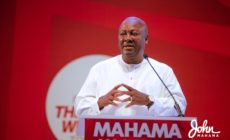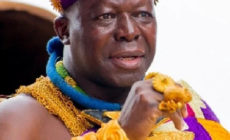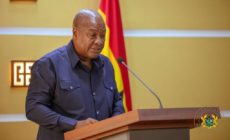It, however, asserted that the President was mandated to seek such advice before making the appointments.
“The President must at all cost have this advice and if he does not have this advice, the appointment is not valid,’’ it said.
Supreme Court justices
On the appointment of justices of the Supreme Court, the court held that although the President was not bound by the decision of the Judicial Council, he could not appoint someone not recommended by the Judicial Council as a justice of the Supreme Court.
“If the Judicial Council recommends a particular person and the President does not feel obliged to appoint that person, there is no obligation on the President to have that person appointed. The only thing is that the President can also not go outside the names or list of persons recommended to him by the body,’’ it held.
The three-tier system
The court further held that although the President was the appointing authority, there were checks and balances, as the recommendation of justices for the Supreme Court was done by the Judicial Council, while Parliament held the veto of either approving or rejecting such appointments.
“The involvement of the Judicial Council, the Council of State and Parliament is meant to be restraints on the appointing power of the President,’’ it held.
Panel
The other members of the panel were Ms Justice Sophia Akufo, Mr Justice Anin Yeboah, Mr Justice A.A. Benin, Mrs Justice Sophia Adinyera and Mr Justice Sule Gbadegbe
Suit
The first suit, filed by the Ghana Bar Association (GBA), was specifically about the appointment of justices of the Supreme Court, while the second and the third suits, filed by broadcast journalists Mr Richard Sky and Kwesi Danso, were about the appointment of the Chairperson of the EC and other members of the commission.
The Supreme Court, however, consolidated all three suits.
EC
On the suits challenging the appointment of the Chairperson of the EC and its members, the apex court dismissed them, saying that “there is no allegation of a breach or threatening breach of any constitutional provision in any of them’’.
“These writs, therefore, seek an advisory opinion from the court. Such advisory opinion is the work of a solicitor and not this court,” it said.
GBA
The GBA was seeking to bring an end to what it termed “persistent” failure on the part of Presidents in the Fourth Republic to seek the advice of the Judicial Council before appointing judges to the Supreme Court.
In its statement of case, the association submitted that the meaning and effect of Article 144 Clause 2 of the Constitution was that while the power of appointment was without doubt vested in the President’s discretion to appoint justices of the Supreme Court, he could only exercise that discretion upon the advice of the Judicial Council.
It further submitted that the President must necessarily adhere to the advice of the Judicial Council to the letter and spirit of the advice given in its strictest essence.
“The President of the Republic of Ghana cannot act out of accord with, side step, ignore or alter the terms of the advice of the Judicial Council in the matter of the appointment of justices of the Superior Courts,’’ it said.
The GBA suit was filed barely 24 hours after Mr Justice Yaw Apau and Mr Justice Gabriel Pwamang had been sworn in as justices of the Supreme Court by President John Mahama.
Richard Sky
Richard Sky, for his part, was questioning the constitutionality of the mode of appointment of the chairperson and the members of the EC.
In his statement of claim, the plaintiff averred that what in his view was pivotal in the determination of the suit was whether the operative phrase “acting on the advice of the Council of State” had any mandatory binding effect.
“My humble view is that the use of the phrase is not accidental and, therefore, has a binding effect, as used in the context of the 1992 Constitution,” he claimed
According to him, there was friction between two constitutional provisions, one which enjoined the President to make such appointments based on the advice of the Council of State.
On the other hand, however, he claimed that another provision stated that the President was not bound by the recommendations of the Council of State.
Section 2 of Article 70 of the 1992 Constitution provides that “the President shall, acting on the advice of the Council of State, appoint the Chairman, Deputy Chairman and other members of the Electoral Commission”.











 (Selorm) |
(Selorm) |  (Nana Kwesi)
(Nana Kwesi)